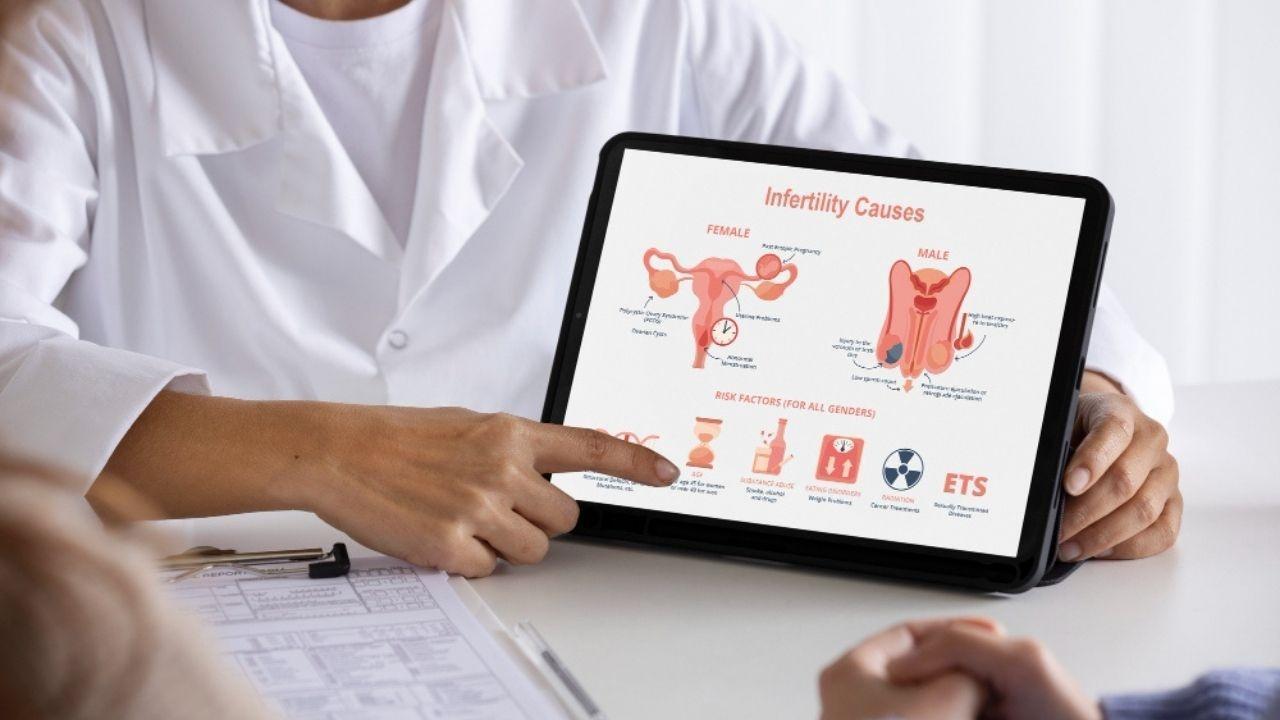You have not yet added any article to your bookmarks!

Join 10k+ people to get notified about new posts, news and tips.
Do not worry we don't spam!

Post by : Mikael Ariff
Polycystic Ovary Syndrome (PCOS) is a prevalent condition impacting many women globally during their reproductive years. Despite its widespread occurrence, PCOS is frequently misunderstood and may go undiagnosed. It can manifest as various symptoms, including irregular menstrual cycles, hair thinning, weight gain, and fertility challenges. Recognizing the signs of PCOS is crucial for effective management. This guide aims to provide clarity on PCOS, its typical symptoms, and the importance of early diagnosis for better treatment outcomes.
PCOS is a hormonal imbalance affecting approximately 1 in 10 women of reproductive age. The condition results in elevated levels of male hormones, known as androgens, which can lead to a variety of symptoms. Women with PCOS may experience irregular menstrual periods, excessive hair growth, acne, and difficulties in conception. While ovarian cysts are often linked to PCOS, not every woman with this syndrome presents with cysts, nor do all women with cysts have PCOS.
Moreover, PCOS has a correlation with insulin resistance, impairing the body's ability to utilize insulin effectively, leading to increased blood sugar levels and potential weight gain, complicating the overall symptom profile.
Symptoms of PCOS can differ significantly among individuals, often developing gradually. Some may exhibit only a couple of symptoms, while others may show several. Here are the most commonly reported symptoms:
Irregular Menstrual Cycles
Women experiencing PCOS may face irregularities in their menstrual cycles. This could mean fewer periods, more intense bleeding, or missed periods altogether, as a result of irregular ovulation.
Hirsutism (Excess Hair Growth)
Elevated androgen levels may result in hirsutism, where women experience excessive hair growth in areas such as the face, chest, or back. This symptom is often one of the earliest signs noticed.
Oily Skin and Acne
Increased androgen levels can heighten oil production, leading to acne, particularly in noticeable areas such as the face, back, and chest. This may be challenging for women experiencing adult acne.
Weight Gain Challenges
Women with PCOS frequently struggle to manage weight, especially around the abdomen. They may find it particularly hard to shed pounds despite adhering to healthy diets and exercise routines due to insulin resistance.
Hair Thinning or Loss
Many women may experience hair thinning or hair loss on the scalp due to elevated androgen levels disrupting the hair growth cycle.
Infertility Issues
PCOS is a leading cause of infertility among women, as hormonal imbalances and inconsistencies in ovulation complicate conception. However, with proper treatment, many women with PCOS can conceive.
Additional Symptoms
Women may also face mood fluctuations, fatigue, or sleep disturbances. These symptoms are often connected to hormonal variations and can exacerbate challenges faced with PCOS.
PCOS often remains undiagnosed due to its gradual symptom development, which can be confused with other medical concerns. Early detection is vital to prevent complications such as type 2 diabetes, heart disease, and endometrial cancer. If you recognize any symptoms identified, seek the guidance of a healthcare provider for an accurate assessment and diagnosis.
Typically, diagnosing PCOS comprises multiple approaches:
Medical History Review
Your healthcare provider will inquire about menstrual cycles, variations in weight, and family history, as well as related health conditions. A comprehensive medical history aids in recognizing potential symptoms.
Physical Examination
The doctor may perform a physical check-up to identify visible signs of PCOS, such as acne, excess hair growth, or fluctuations in weight.
Laboratory Blood Tests
Blood tests may be conducted to assess hormone levels, including androgens and insulin, providing insights into hormonal imbalance typical in PCOS.
Ultrasound Examination
A pelvic ultrasound may help identify ovarian cysts, although the presence of cysts alone does not confirm a diagnosis of PCOS.
While there is no definitive cure for PCOS, early intervention can substantially aid in balancing the symptoms and mitigating health risks. Key strategies for managing PCOS include:
Healthy Lifestyle Adjustments
Adopting a balanced diet and engaging in consistent exercise are vital in managing PCOS. Consuming whole grains, vegetables, and lean proteins can enhance insulin sensitivity, support hormonal equilibrium, and help maintain weight. Regular exercise contributes to improving weight management and insulin responsiveness.
Medications
Prescriptive medications may be utilized to regulate menstrual cycles, control insulin levels, or facilitate fertility. Birth control tablets can stabilize cycles and alleviate symptoms like acne and excess hair growth, while metformin may enhance insulin sensitivity for women dealing with insulin resistance.
Skin and Hair Treatments
For those coping with hirsutism or acne, implementing anti-androgen medications or exploring laser hair removal may provide symptom relief.
Mental Health Support
PCOS can impact mental well-being due to its physical manifestations. Seeking therapy, joining support networks, or speaking with a counselor can be beneficial for those navigating emotional challenges associated with PCOS.
PCOS considerably influences various facets of a woman’s health, such as menstrual well-being, skin, fertility, and weight management. Understanding the symptoms and recognizing the need for timely diagnosis is crucial for efficient management. Although PCOS is not curable, lifestyle modifications, medical interventions, and emotional support strategies can empower women to lead healthy, satisfying lives. If you're concerned about the possibility of PCOS, it's imperative to engage with a healthcare provider to seek a tailored diagnosis and treatment approach.
This article serves as a resource for informational purposes and does not substitute professional medical advice, diagnosis, or treatment. While the details give an overview of PCOS, consulting a healthcare practitioner for individualized care remains crucial, especially if underlying health issues arise. Every individual's experience with PCOS is unique, and outcomes from lifestyle changes or treatments may vary. It is advisable to seek expert guidance before making significant adjustments to your health regimen.










China Ousts Three Retired Generals from Top Political Advisory Body
CPPCC ousts retired PLA generals ahead of annual Two Sessions as broader anti‑corruption military sh

Japan Jobless Rate Rises to 2.7%
Japan sees first increase in jobless rate in five months as voluntary quits rise and job openings sl

Strong 6.1-Magnitude Earthquake Shakes Indonesia’s Sumatra Island
Tremors felt across region no immediate reports of damage or casualties as authorities monitor seism

Rizwan Sajan Reaffirms Trust in UAE’s Safety and Growth
Danube Group Chairman Rizwan Sajan assures residents and expatriates of safety in UAE, highlighting

India Witnesses Chandra Grahan Blood Moon Visible in Parts of World
Skywatchers observe partial eclipse in India as total ‘Blood Moon’ visible across North America Aust

14 Pakistan Players Shortlisted for The Hundred 2026
ECB reiterates nationality will not influence selections as Haris Rauf and Shaheen Afridi headline P